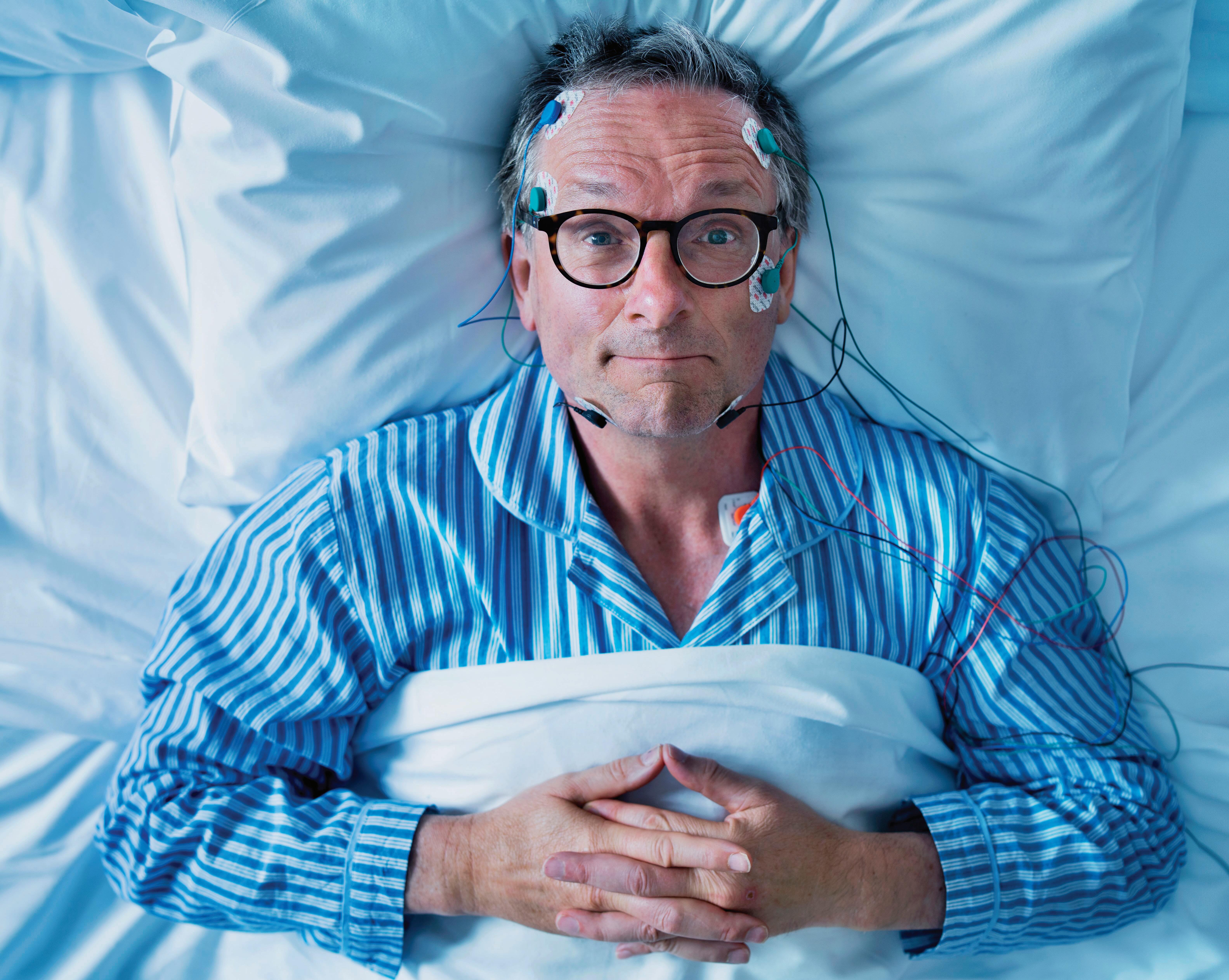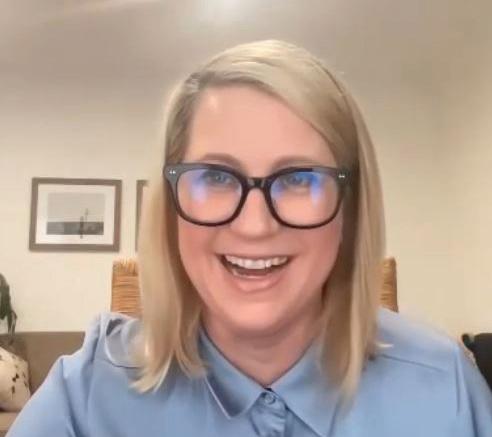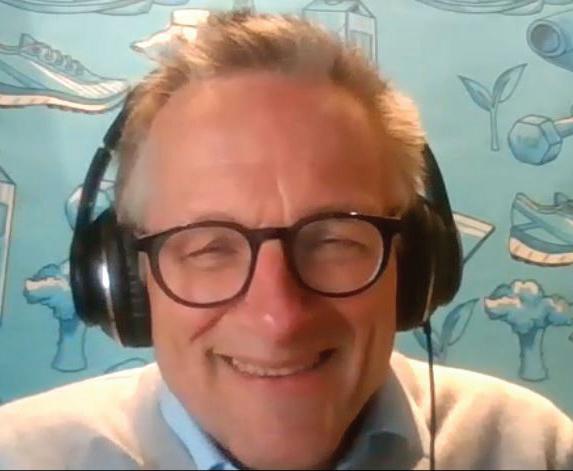Saving sleep saves lives… and a whopping 66 billion health dollars… so why isn’t the government doing more?
DEAD TIRED

Rahni Sadler chatted with Michael Mosley who participated in a clinical trial at Flinders University, documented in the SBS series Australia’s Sleep Revolution.


Q. What percentage of Australians suffer moderate to severe sleep issues and how much is it costing the Australian economy?
The estimate is 40% of Australians at a cost of $66 billion.
Q. As a society do you think we take sleep issues as seriously as we should?
Absolutely not. Individuals take it seriously because it affects them so badly but governments on the whole don’t prioritise it. They don’t see it as something that they should action or do anything about or indeed encourage ways of preventing insomnia.
Q. As compared to other severe health issues like smoking, diabetes and heart disease where does sleep fit in the degree of seriousness?
I think that sleep is one of the drivers of most of those chronic conditions. We know that if you aren’t getting
good quality sleep, then that massively increases the impact on your brain – anxiety, depression, it accelerates the risk of dementia, type two diabetes, hypertension. Sleeping less than six hours a night is associated with increased mortality risk.
Q. Why do you think sleep has fallen through the cracks?
I think it’s something we all kind of take for granted. One of the things I discovered making this series is that politicians seem to be enormously sleep deprived, so perhaps they regard it as a perfectly normal thing. The other thing is obviously that doctors and health professionals enter the profession and are often chronically sleep deprived themselves because they’re put through horrible regimes.
Q. What are the long-term implications of not taking action
to address sleep issues, not just for those who suffer from insomnia but for our health dollars?
The long-term consequences of not dealing with sleep issues are going to be humungous. I think that you are going to be paying the consequences of today’s inaction in the future. And that’s something that you hope would focus politicians’ minds.
Q. Do you think there is still work to be done in terms of the way doctors are rostered on?
Absolutely. I mean my hope is that it has improved a lot already. When we were part of the EU there were rules and regulations brought in to limit the hours that doctors in the UK can work, but to be honest an awful lot of doctors go outside those norms because they see it as important for their career and they can be hanging around the hospital for insane amounts of time.
Q. What advice do you have for doctors who work extraordinary hours or do demanding shift work?
If you’re doing shift work, it’s important to bring healthy food with you. You might consider bringing a lightbox because when you’re feeling lonely, feeling tired, rather than drinking huge amounts of caffeine, one way to brighten yourself up is with exposure to bright light. Also watch out when you’re driving home because an awful lot of car accidents happen the morning after a long night shift.
Q. As practitioners do you think doctors have enough in their toolkit to deal with serious long term sleep issues?
Absolutely not. Unfortunately, doctors get very little training in sleep. The natural inclination is to prescribe medication (which is) good for dealing with short term distress but not for chronic long-term problems. Doctors are not equipped to
actually deal with insomnia, they don’t understand it, they don’t know how to treat it and they don’t have the time to treat it, which is why you need referrals to specialist sleep clinics and psychologists who can give you CBTI, but the trouble is there just aren’t very many of them. That’s because they’re not funded. My understanding is in Australia this treatment is expensive and therefore inaccessible to many people.
“Lack of sleep affects pretty much every system in the body and therefore it seems entirely logical to me that you would want to treat one of the primary drivers of ill health rather than just dealing with the consequences.”Michael Mosley
Q. In your tv series the issue is raised that maybe we are treating things the wrong way round?
When I was at the Flinders Institute coaches said quite often, they find that people who came in with depression and anxiety, if you treat their sleep then the depression and anxiety go away. So, it can be more cost effective to treat the insomnia than to treat the depression and anxiety which anyway is quite often resistant to treatment.
Q. What advice do you have for the Australian government?
I hope that this documentary series will shame them into action or at least encourage them into action. You had this parliamentary inquiry held in 2019. You had this full report,
filled with recommendations –none of them implemented as far as I know.
Q. Can you tell us about the nature of the Flinders University trial?
The idea was 30 chronic insomniacs with a range of sleep problems and eight weeks for the Flinders team to try to sort it out. It’s a multidisciplinary team; psychologists, doctors, sleep scientists, technicians, data analysts etc. and what they want to do is create an effective program which can be rolled out, so it wouldn’t be dependent on having a specialised team, this was a kind of trial of concept if you like and the results as you will see in the series were just outstanding. I believe they’re planning to publish soon.
Q. When you say rolled out, it’s something people will be able to access easily?
It’s something that could be done online, which could support doctors delivering it. Initially it’s about the diagnostics then it’s about the delivery and then it’s about assessing the impact of the various interventions in a sleep lab. But once you’ve done all those things, you can start to put together a program which could be extremely cost effective, which could genuinely deliver a sleep revolution. dr.
Michael Mosley is a science presenter, journalist and executive producer. He studied medicine at the Royal Free Hospital Medical School. After graduation he became disillusioned with his chosen speciality, psychiatry, and joined the BBC. He is best known for his advocacy of intermittent fasting and low-carbohydrate diets. In 2021 he presented Australia’s Health Revolution for SBS, a series which helped eight Australians to reverse their type 2 diabetes with a lowcalorie diet and lifestyle changes.
